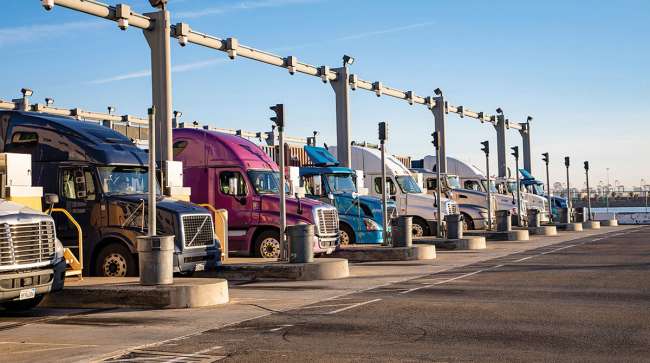Senior Reporter
FMCSA Plans New Study on Detention Time

[Stay on top of transportation news: Get TTNews in your inbox.]
Federal trucking regulators have announced plans to conduct a study aimed at providing a better understanding of the impact of driver detention time on driver safety and commercial motor vehicle operations.
“With an eye on a future updated driver detention study, the Federal Motor Carrier Safety Administration is seeking industry comment on how loading and unloading delays at company docks are impacting safety and operations,” said the agency’s Aug. 24 Federal Register post.
The research study, after gaining approval of the White House Office and Management and Budget, will collect data on CMV driver detention time representative of the major segments of the motor carrier industry, analyze that data to determine the frequency and severity of detention time, and assess the utility of existing intelligent transportation systems solutions to measure detention time.
Approximately 80 carriers and 2,500 CMV drivers will be selected to provide data in the study, and the research will also inform strategies that may be used to mitigate driver detention time, FMCSA said.
Public comments on the notice must be received on or before Oct. 23.
Detention time refers to the extra time commercial motor vehicle operators wait at shipping and receiving facilities due to delays associated with the loading and unloading of cargo. Drivers are often not paid for this extra time.
“Although there is currently no standard definition of detention time, the CMV industry, the U.S. government and academic detention research in the United States have typically used dwell time — the total amount of time spent at a facility — exceeding two hours to define when detention time occurs,” FMCSA said. “Detention time in the CMV industry is a long-standing issue and consistently ranks as one of the top problems for a large portion of CMV operators on an ongoing basis.”
The agency said that detention time often results in lost revenue for many drivers and carriers.
“Reducing detention time may reduce costs for carriers, increase pay for drivers, and improve CMV drivers’ ability to make deliveries on time or arrive at a destination as planned without violating hours-of-service requirements,” FMCSA said. “Drivers who experience less detention time also may be more likely to drive safely to reach their destinations within the HOS limits and less likely to operate beyond HOS limits and improperly log their driving and duty time to make deliveries on time.”
In 2014, FMCSA completed a study on the impact of detention time on CMV safety.
“Although this study provided valuable initial insights, it had several limitations, including a small sample of mostly large carriers, a rudimentary estimation of detention time, the inability to identify time spent loading/unloading, and data that did not cover an entire 12-month period,” FMCSA said. “Therefore, FMCSA needs additional data from a broader sample of carriers to understand the safety and operational impact of detention time, to better understand why detention time occurs, and to identify potential mitigation strategies the CMV industry may use to reduce detention time while improving operational efficiencies and safety.”
The agency said it will prepare a final report that summarizes the findings, answers the research questions, and offers strategies to reduce detention time.
Want more news? Listen to today's daily briefing above or go here for more info
The study will include data collection via electronic logging devices, transportation management systems, vehicle telematics systems, safety records and answers to questions delivered through the carriers’ dispatching systems. After agreeing to participate in the study, carriers will collect and provide 12 months of data.
FMCSA said the sample will include a variety of carrier operations, including longhaul/shorthaul, private/company fleets and for-hire fleets, port servicing, owner-operators, hourly and mileage-based operators, truckload/less-than-truckload and dedicated local delivery.
The study also will estimate the cost per year associated with detention time, including lost productivity, disruptions to the supply chain, and any increases in fatal, injury and property-damage-only crashes.




